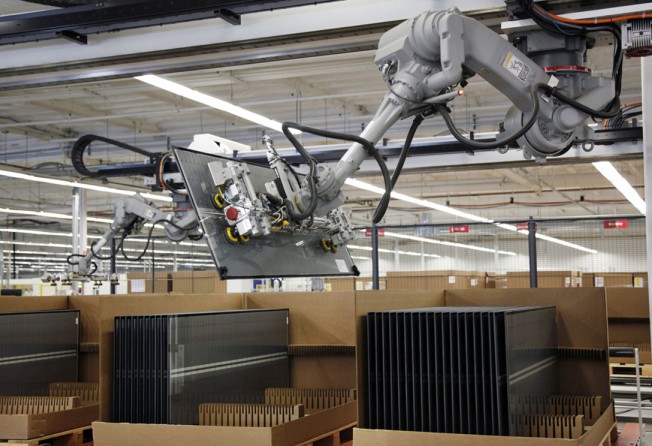Pearl Briefing | Risk and reward in running the delta's factories with robots
Machines are helping factories cut labour costs amid manpower shortage

As artificial intelligence experts debate whether robots will be an economic boon or a social threat, several cities in the Pearl River Delta have taken a leap by launching government-backed AI programmes.
Item not supported in this print-friendly version
Nearly 2,000 analysts surveyed by the US-based Pew Research Centre are split about the role of robots in society in the coming decade, with 52 per cent optimistic about the future, believing more jobs would be created than taken away by the technology. The rest worry about a possible breakdown in social order if robots replace human workers in a range of industries all at once.Print option is available for subscribers only.
SUBSCRIBE NOW